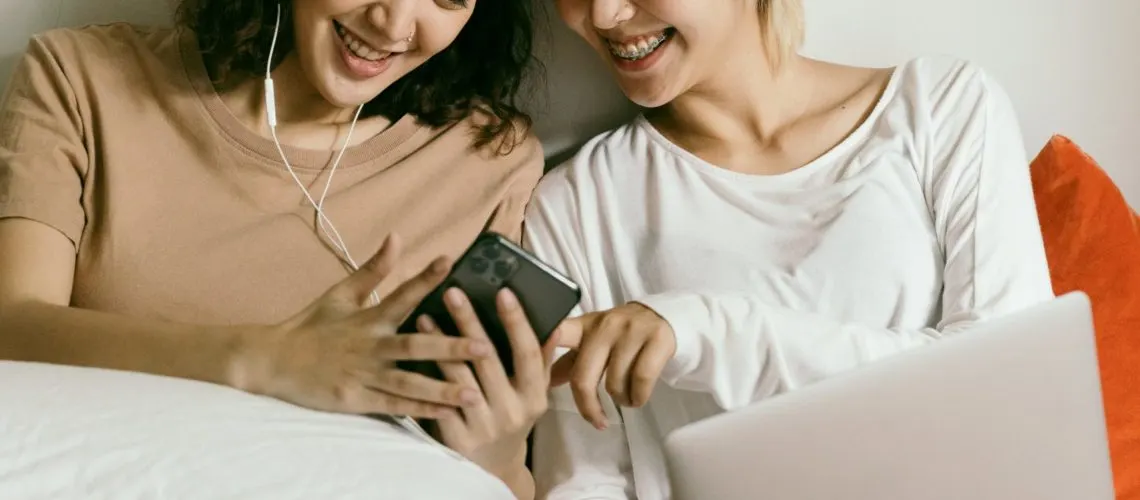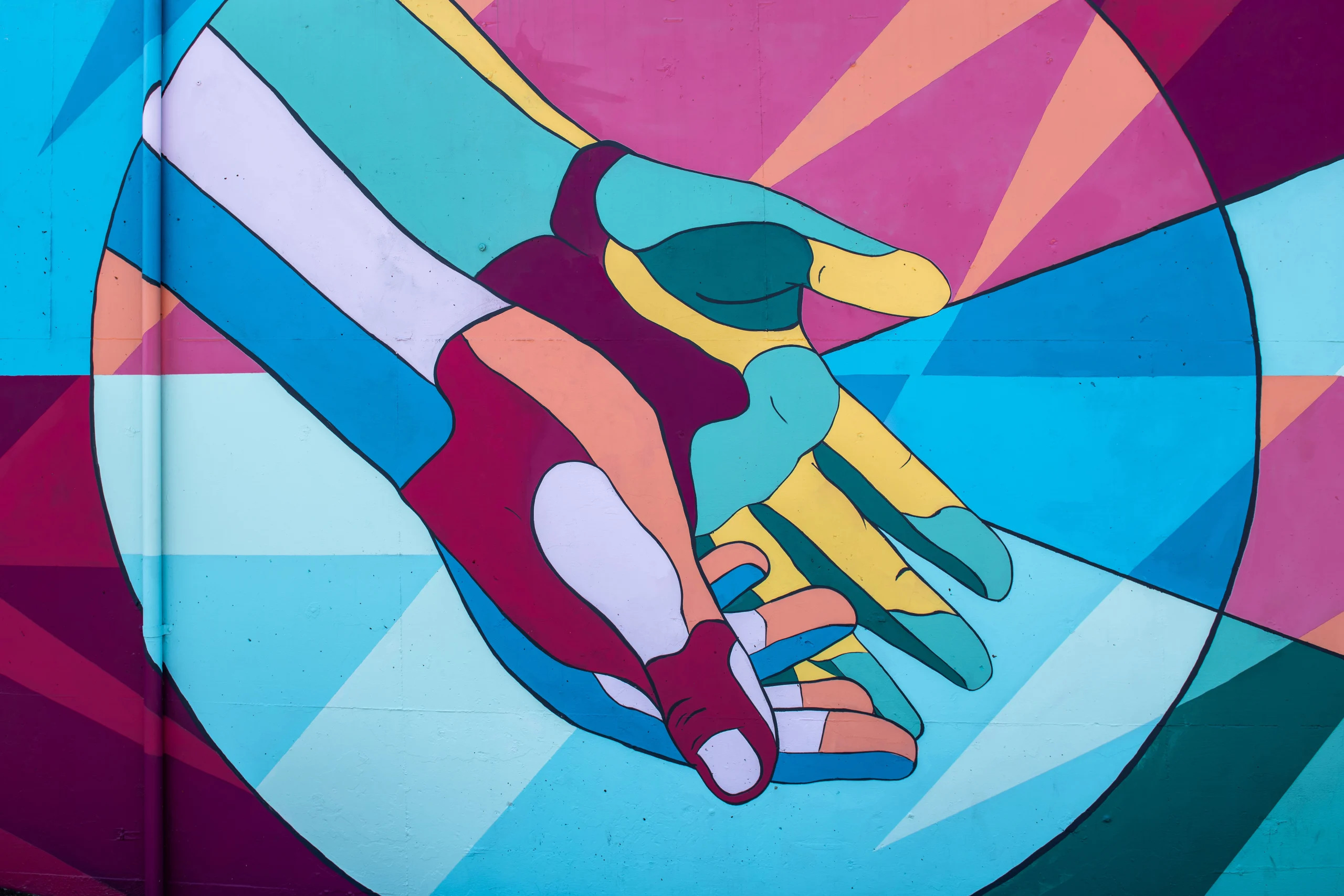If you’re a gay man having problems with your boyfriend, it might not be the best idea to go to your straight girlfriend for help. Sure, she may be compassionate and empathetic to your problems, and give you a much-needed confidence boost, but LGBTQ people have unique circumstances that extend to their relationship dynamics that only other LGBTQ people and professionals can fully grasp.
It’s important if you’re struggling in an LGBTQ relationship to get specific LGBTQ couples therapy that truly and authentically understands this unique experience in the world, including surviving oppression where gay or non-conforming gender identity is often seen as “less than.” Naturally, our experience of being in a relationship is also different from others. We have different ideals, different rules, different expectations, and the struggles aren’t always the same as straight couples.
Here are 5 ways we are different than our straight buddies in relationships.
1. LGBTQ couples don’t have as much societal pressure as straight couples
If you are born a straight person into this world, you automatically assume a lot of societal expectations that are placed upon you. You are expected to date, fall in love with someone of the opposite gender, get married, and then have your own family. Rinse, and repeat.
As LGBTQ people, one of the benefits we get is that because we’re already considered “out of the norm”, there’s less expectation to fit into usual societal boxes. There is a freedom in this, because there’s more room to grow into your authentic self, based on what you truly want for yourself and your relationship, and less what you think others want of you.
If you don’t want to get married, not as big a deal. If you don’t want to have kids, no problem. We get to tailor our relationship to us, instead of tailoring us to the expectations of our relationship.
The good news here, is you get to negotiate that with your partner through various conversations, explorations, or experiences. You may end up wanting marriage and wanting kids, but you get to decide that from a pure place. Some people say that as the LGBTQ community assimilates more and more in society, that societal pressure will increase. However, I encourage you to try to hold onto that freedom to decide what’s right for you, even as we feel more and more equal in society.
2. LGBTQ couples have more freedom when it comes to monogamy.
Monogamy isn’t for everyone, but it is for some. Because LGBTQ people don’t feel as much pressure to fit into societal norms, we are able to define the parameters of our relationship even when it comes to sex. A lot of LGBTQ couples have open relationships, bring in a third partner, or have a “don’t ask, don’t tell” policy.
LGBTQ people understand that long-term monogamy can be hard, and while some are totally fine with that and prefer it, others want to create new terms. A lot of times, gay people spend many years repressing their sexuality because it felt “wrong”, so when they are finally out and free to be themselves and explore, their desire to experiment can be on overdrive. Some relationships may have to adjust to this.
The benefit of widening the confines of traditional heterosexual relationships is that partners can be true to themselves, without repressing desires, which can feel stifling or breed resentment in the relationship. Without the stigma of non-monogamy, LGBTQ couples can explore this facet of their partnership, yet still be committed to a loving partner in every single way. Sex doesn’t always have to mean intimacy in an LGBTQ relationship, and how that looks can be explored in LGBTQ couples therapy.
3. LGBTQ couples can have unique dynamics due to internalized homophobia
This might come as a surprise to you, but LGBTQ couples have high rates of domestic violence. One theory is that it’s related to “internalized homophobia,” the idea that LGBTQ people sometimes have a negative feeling about gay people (including themselves), due to unconsciously absorbing messages in childhood that being gay is bad or “less than.” In these instances, an LGBTQ person might take their unconscious anger out on their partner without even realizing it.
There can be vicious fights, especially if mixed with substance use, and even physical violence. The good news is, couples therapy and individual therapy can help work through this internalized homophobia, to minimize its impact in a relationship and on self-worth.
4. LGBTQ couples can struggle with communicating their needs
Many times, LGBTQ people grow up feeling discriminated against in some way, which can lead to years of internalized shame. This “toxic shame” creates roadblocks when it comes to expressing needs and wants with a partner, because a person who has shame may not feel they deserve to have their voice heard.
This shame is purely a product of society and homophobia, not something that this person would naturally have as an LGBTQ person. It can lead to low self-worth and have reverberations in a relationship. Therapy is an important way to work through internalized shame so that you have no problem voicing your needs and wants. An understanding professional can help and guide you to practice telling your partner how you feel.
5. LGBTQ couples can look so many different ways
Even within the LGBTQ community, there are so many different types of couples. While this holds true with straight couples as well, I think it’s even more striking in the LGBTQ community.
The stereotype of lesbian couples, for example, is that they commit to each other instantly and want to move in with their partner immediately (where’s the U-Haul?!). The joke with gay men, is that one year of being together is equal to 10 years for non-gay couples, because it’s so rare to stay together. The point here is that LGBTQ couples have a huge range in dynamics, therefore, a competent LGBTQ couples therapist will need to let go of all expectations, rules, and biases, to make room for a wide open range of expression.
Being LGBTQ is a beautiful thing. We get to have a unique experience in the world that’s outside the assumed norms. That said, it takes a certain therapist who really understands that experience to help a couple navigate their issues.
I once had a client that said, “Isn’t going to couples therapy basically the kiss of death in a relationship?” I had to disagree. By talking through your feelings and desires, and understanding yourselves better, you can become much stronger in a partnership. It doesn’t mean a breakup is inevitable, by any means. The goal is to have a safe and understanding space to explore, and learn how to communicate.
If you have any feedback, tips, or want to let us know which state to launch in next, please contact us at info@LGBTQtherapyspace.com.
We encourage you to also follow us on our newly launched social media channels:
Twitter
Facebook
Instagram
LinkedIn
Jake Myers, LMFT
Founder, CEO
LGBTQ Therapy Space



